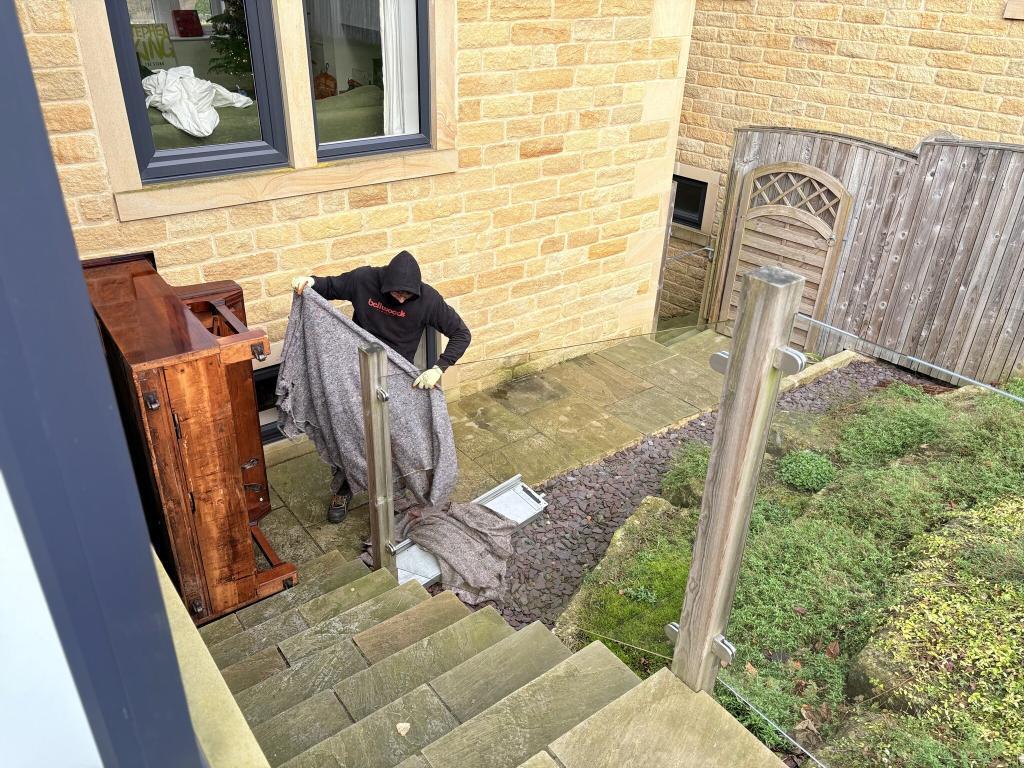Piano Disposal experts North Yorkshire
Piano Disposal experts covering the whole of North Yorkshire.
Do you have an old Piano that won’t hold a tune?
We are licensed to ethically and legally dispose of your old piano. We can dispose of every kind of traditional piano, from Grand pianos to Upright pianos, even Pianolas.
If you live in North Yorkshire, contact us today for a free piano disposal quotation. Trust the experts with your piano Disposal.
Trusted Service with Professional Care
Our dedicated team in North Yorkshire understands how cumbersome and emotionally challenging it can be to part with an old or unwanted piano. That’s why we make the process as seamless as possible — from your first enquiry to final collection. We’re fully insured, trained in safe piano handling, and equipped to navigate even the trickiest homes, whether that’s upstairs stairwells or tight corners. Every removal is carried out with care, minimizing any disruption to your space, property or schedule.

We cover North Yorkshire for Piano Disposals.
Contact us Today to get a FREE piano disposal quotation.
We offer affordable Piano Disposal services throughout North Yorkshire.
We cover the following areas and much more: Craven, Hambleton, Harrogate, Richmondshire, Ryedale, Selby, and Scarborough.
Environmental Responsibility at Our Core
At Piano Disposals UK, sustainability isn’t just a buzzword — it’s a promise. When we bring your piano to our facility, we don’t just throw it away; we meticulously dismantle it, separating materials like hardwood, iron, and lead, then recycling each responsibly. Thanks to this approach, we manage to divert more than 99% of every instrument from landfill. The wood often becomes briquettes, and metals are sent to licensed recycling centres. By choosing our service, you’re making an eco-conscious decision that protects both the planet and the heritage of your instrument

A few facts about North Yorkshire.
North Yorkshire is England’s largest county, and many of the people who live or visit the area will tell you it is one of the most picturesque and a terrific place to spend any amount of time.
From the Yorkshire Dales in the west, past the city of York – which is one of the country’s most popular tourist destinations – through the North York Moors to the magnificent Yorkshire Coast towns of Scarborough and Whitby, North Yorkshire truly has the lot for visitors, from historic sights to impressive natural wonders.
Serving the Entire North Yorkshire Region
Our piano disposal services extend throughout the entire North Yorkshire area, including Craven, Hambleton, Harrogate, Richmondshire, Ryedale, Selby, and Scarborough. Whether you’re in the heart of a bustling town or nestled in a picturesque village, our team is equipped to assist you. We understand the unique challenges each location presents and are committed to providing efficient and professional service tailored to your needs.
Commitment to Sustainable Practices
At Piano Disposals UK, we are dedicated to minimising our environmental impact. By ensuring that less than 1% of each piano we collect ends up in landfill, we uphold our commitment to sustainability. Our meticulous recycling process involves separating materials such as wood, metal, and lead components, which are then processed appropriately. This approach not only conserves resources but also supports the circular economy, where materials are reused and repurposed, reducing the need for new raw materials.